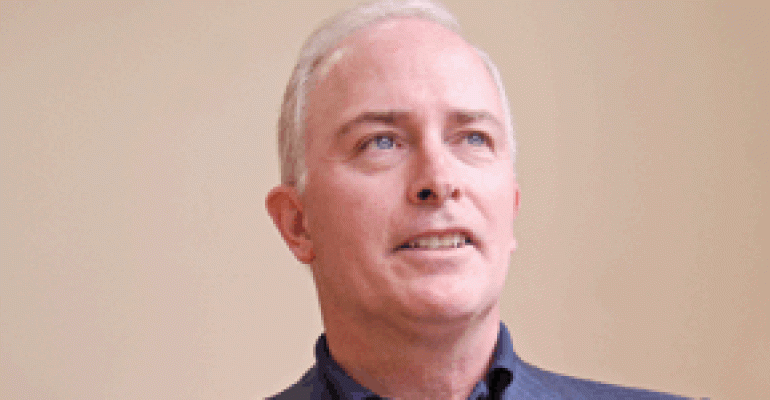Client asset withdrawals have slowed at the embattled U.S. wealth management business of UBS where, in a positive sign to investors, it reported much stronger first quarter pre-tax profit than previously expected. One analyst said the U.S. business could, consequently, turn another significant corner by the end of this year—a reversal on client asset flows out the door.

UBS AG Chief Executive Officer Oswald Gruebel, said at the annual UBS shareholders’ meeting in Basel today, 14 April, that he’s optimistic about the prospects for Switzerland’s biggest bank after a return to profit—even as he anticipated more withdrawals ahead at the private bank. “We will have to accept further outflows before we can turn this trend around,” Gruebel said. He sees growth coming from the firm’s trading side.
“The progress we have made in improving our operating efficiency, reducing risk and reorienting our business will continue to bear fruit in the months to come. We have every reason to be optimistic,” Gruebel said in Basel.
Said Dick Bove of Rochdale Securities, “I think, ultimately, UBS will have inflows as opposed to reduced outflows, maybe at the end of this year.” He stressed, however, that he doesn’t think this reversal will happen “quickly.” Bove noted that UBS must keep up with brokerage rivals, such as Morgan Stanley Smith Barney, who’ve come back “swinging” after the worst of the industry’s credit crisis has passed.
In the pre-announced quarterly numbers reported Monday, UBS Wealth Management Americas had net withdrawals of 7 billion Swiss francs (CHF) in its first fiscal quarter, compared with CHF11 billion withdrawn in the fourth quarter of last year, and CHF8.6 billion in the third quarter of fiscal 2009. A total of CHF 15 billion in overall client assets were pulled from UBS worldwide in the quarter, down from CHF56 billion in fourth quarter outflows. The U.S. outflows account for just under one percent of the Americas unit’s assets.
Meanwhile, the Zurich-based bank is expecting to report pretax profit of at least CHF2.5 billion (or about $2.3 billion) in the first quarter. That would be three times the size of fourth quarter pretax profit and the second consecutive quarterly profit for UBS, just as it emerges from a damaging international tax evasion scandal. That scandal predates the arrival of Merrill Lynch vet Bob McCann (pictured here) as CEO of the Americas unit.
McCann took the helm six months ago and has laid out a turnaround strategy that will focus more on ultra-high-net worth and high-net worth clients. McCann inherited a demoralized unit, stung by the auction rate securities debacle in addition to the tax scandal. Bove said the latest signs of strength at UBS did not come from wealth management, but rather from its trading activity. He said McCann has, therefore, his work cut out since he must, in effect, reinvent UBS Wealth Management Americas to grow. He will need to provide newer broker workstation technology, and a strong sales pitch to a whole new set of clients, Bove noted.
The old UBS wealth management model in the U.S., built on its connections with Switzerland and the “supposed advantages” this offered clients, is no longer feasible, Bove said. That’s because of the agreement hammered out by U.S. and Swiss authorities in the wake of the UBS tax scandal, he added. In a recent UBS town hall meeting with his troops, McCann presented the outlines of the turnaround strategy orchestrated by a special “renewal” team of UBS executives. As part of this, Wealth Management Americas will aim for $1 billion in pre-tax profit in the next three to five years. McCann believes FA headcount today at the Americas unit -- 7,084 FAs as of first quarter 2010 -- is right. The business would invest in FA technology and would support banking products “relevant” to the market. Contrary to speculation, the troops were told, UBS would not be rebranded as PaineWebber, the brokerage acquired by UBS in 2000 and later folded into the firm.
“We know that although our bank has turned the corner, we still have a long and arduous road ahead,” Chairman Kaspar Villiger told shareholders in Basel.



